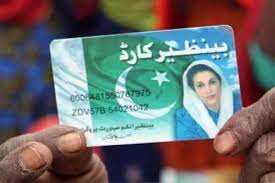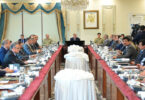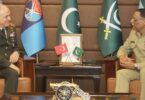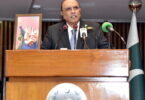F.P. Report
ISLAMABAD: The Benazir Income Support Program (BISP) has so far reached over 247,000 children and 231,000 pregnant and lactating women (PLW) under the Benazir Nashonuma initiative. According to an official source, these beneficiaries had been served through the network of over 400 Nashonuma Centers across the country.
The Conditional Cash Transfer (CCT) intervention of Benazir Nashonuma was designed in August 2020 to increase the uptake of Health and Nutrition services of its beneficiaries.
The primary objectives of the program were to prevent stunting in children under two years of age, improve weight gain of pregnant women during pregnancy, reduce anaemia and micronutrient deficiencies, and prevent low birth weight.
World Food Programme (WFP) is the lead implementing partner for Ehsaas Nashonuma. The programme aims to address stunting among pregnant and lactating women (PLW) and their children less than two years of age through the provision of additional cash of Rs. 2,000 per quarter per PLW and boy child and PKR 2,500/- per quarter per girl child of BISP beneficiary families.
In return, mothers must commit to attending regular antenatal health checks and awareness sessions during pregnancy, consuming specialized nutritious food (SNF), and taking their children for immunization and regular health checks. According to the statistics, Pakistan’s high rates of malnutrition (40.2% stunting, 28.9% underweight, and 17.7% wasting) are indicative of an ongoing child nutrition crisis. Such levels of malnutrition rank Pakistan as the second-highest burden country in the region.
The first 1,000 days of a child’s life are a window of opportunity to lay a strong foundation for later achievements. This timeframe is a period of enormous change characterized by a high degree of plasticity in the child’s neurological development. Investments in the early years of life are the foundation of human capital, and human capital is a key driver of economic development in the modern economy. (APP)







